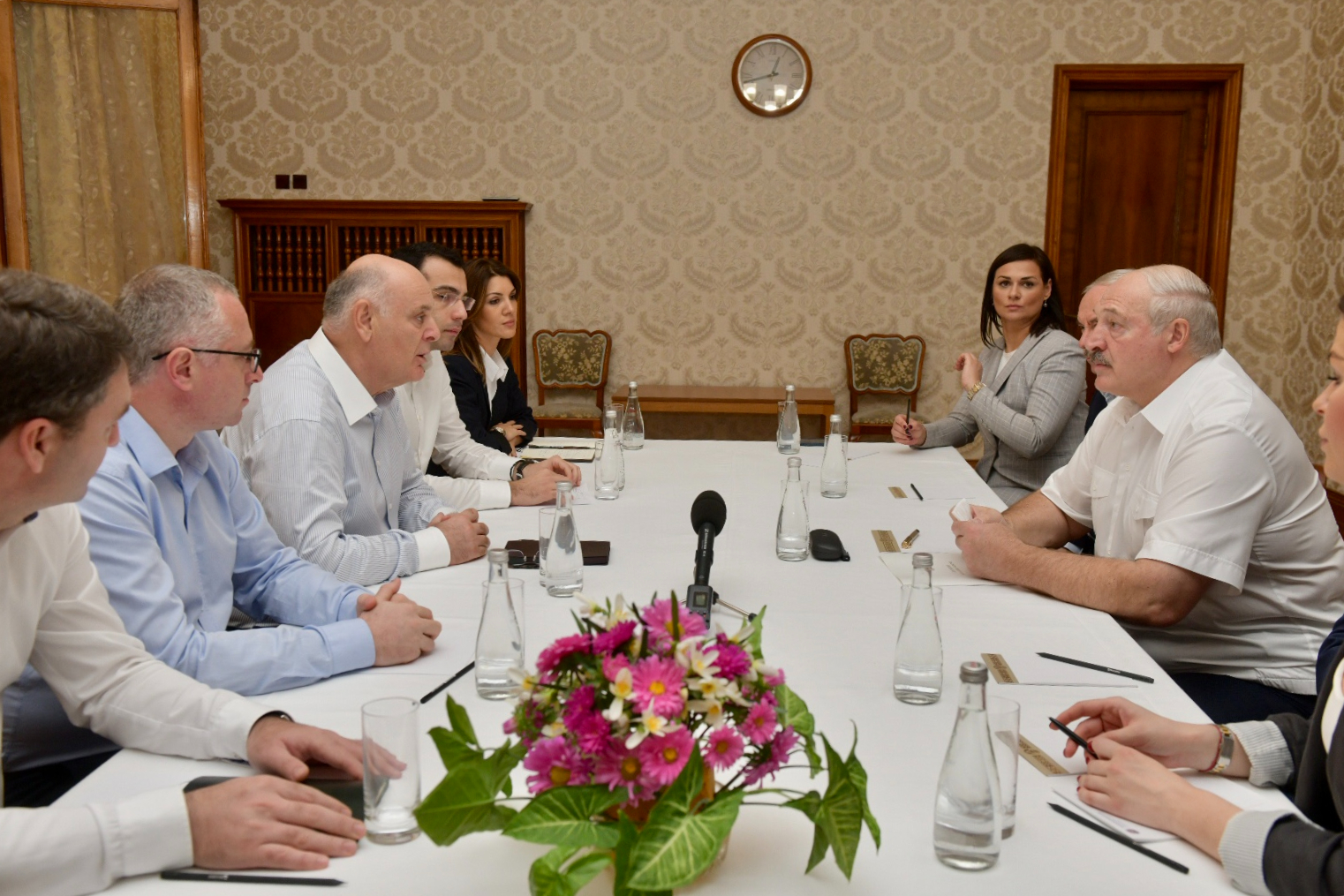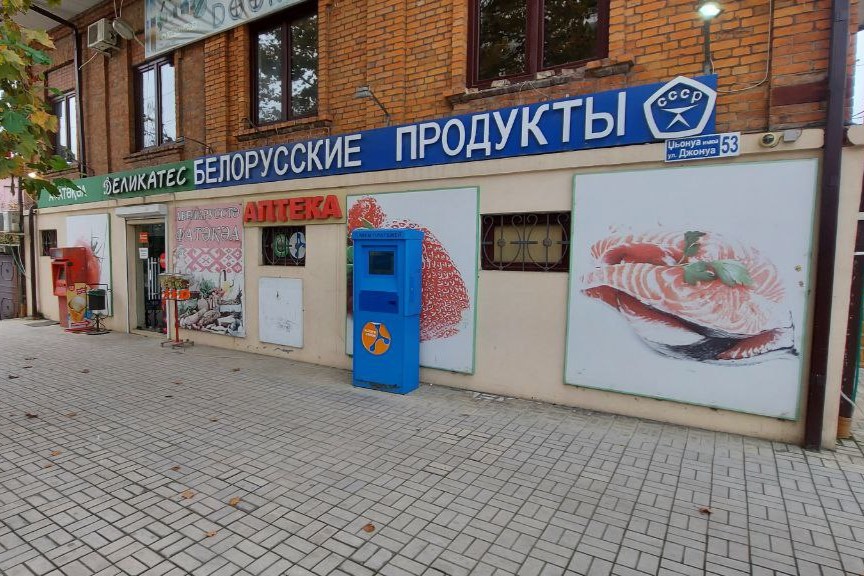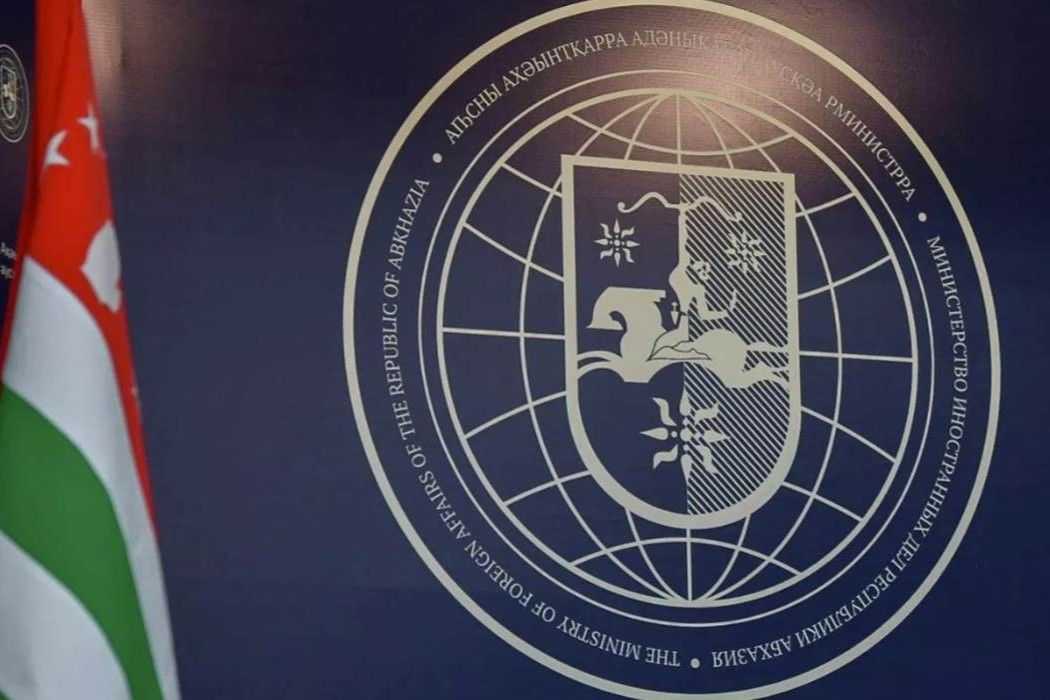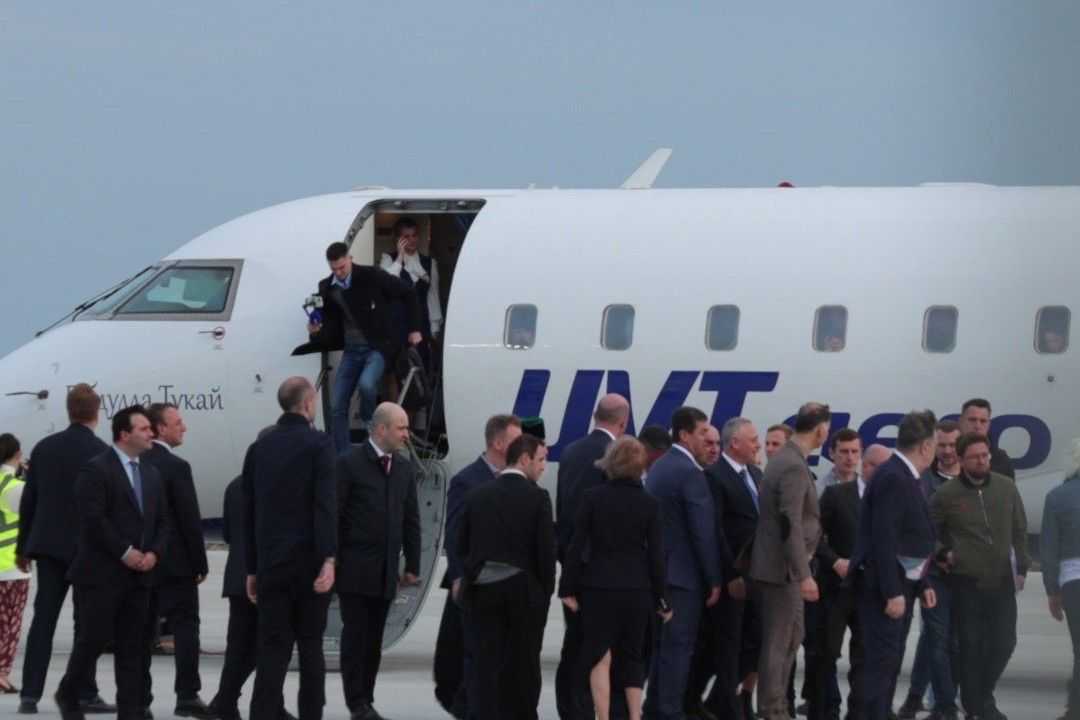
Following an unprecedented visit by President Lukashenka, deeper economic, diplomatic, and even military ties appear to be developing between Abkhazia and Belarus. But despite Russia seeking to bolster cooperation between its allies, Belarusian recognition of Abkhazia may not be on the table.
Abkhazia’s President Aslan Bzhania had exciting news to share. Addressing the public on 10 November, Bzhania announced that Belarus was going to implement a ‘major project’ in Ochamchira (Ochamchire), southern Abkhazia, and suggested that, even more significantly, this might precede a diplomatic coup for Abkhazia.
‘Alyaksandr Lukashenka said that in countries with which Belarus has a trade turnover of more than $50 million a year, they are opening embassies. And our trade turnover will be much more than $50 million’, announced Bzhania.
Abkhazia and Belarus have long had strong economic ties, with almost every shop in Abkhazia stocking foods, household chemicals, and other products imported from Belarus, and mandarins exported seasonally in the opposite direction. Close political ties, however, are a much more recent development.
Uniting in the face of Western pressure
A visit by Lukashenka at the end of September was the first sign that Abkhazian-Belarusian relations might be moving closer.
Despite the informality of his visit and meeting with Bzhania, the event was understood to be significant. Abkhazia and its government are currently recognised only by Russia, Venezuela, Nicaragua, Nauru, and Syria, meaning that visits from foreign heads of state are few and far between.
Lukashenka’s visit prompted suspense and tension in Sukhumi (Sukhum), with the optimistic hoping that Minsk might soon recognise Abkhazia as independent, and the cautious wary of what this deviation from the standard state of affairs might signal.
But anyone who had thought this might be a one-off from Lukashenka was soon proven wrong. Just over a month later, on 1 November, members of the Belarusian parliament arrived in Abkhazia for the first time since the fall of the Soviet Union, part of an official visit together with Russian MPs.
Some of the delegation were members of the parliamentary assembly of the Union State of Belarus and Russia, a union between the two countries based on economic and defence cooperation. The Belarusian and Russian MPs met with their Abkhazian counterparts, as well as the Speaker of the Abkhazian Parliament, Lasha Ashuba, and President Aslan Bzhania.

The main focus of all these meetings was the idea that, against a backdrop of confrontation between Russia and the West, Soviet-era ties needed to be nurtured and restored to allow for mutual support in the face of Western sanctions.
‘We see how much external pressure is on our countries now. And only together, united, can we resist these sanctions, not only economic, but political too,’ said Artem Turov, a Russian MP, at a meeting with Abkhaz officials.
‘We see this constant information warfare […] against our countries, the values that we have — our religion, our culture, our historical memory — unite us in order to be together and confront the challenges that our countries face’.
Abkhazia’s presence in the union state is not entirely new. Since 2008, Abkhazia has been a permanent observer in the Parliamentary Assembly of the Belarus-Russia Union, with delegates from Sukhumi observing election campaigns within the assembly. The favour has also been returned — in 2009, observers from the Union State attended the presidential elections in Abkhazia.
But the seeds of the partnership between Sukhumi and Minsk can be traced back to 1996. In January of that year, Lukashenka refused to join an economic blockade of Abkhazia supported by almost all former Soviet republics at a meeting of the heads of the Commonwealth of Independent States (CIS), a Russian-led post-Soviet regional organisation.
That action was not forgotten. At a meeting with Lukashenka in Pitsunda in September, Bzhania noted that Abkhazia still remembered and valued Lukashenka’s gesture of support, which came at a time when Abkhazia had been largely cut off from the rest of the world.
Good intentions and military support
Abkhazia’s pursuit of legitimacy and against international isolation continues, almost thirty years later.
Abkhazian Foreign Minister Inal Ardzinba has repeatedly stated that Abkhazia intends to join the Union State of Russia and Belarus. However, unless Minsk moves to join Moscow in recognising Abkhazia as a sovereign country, a tri-partite union state will not be possible.
And for Lukashenka, such a step would come with repercussions. Recognising the independence of Abkhazia could mean breaking off diplomatic relations with Tbilisi, a relationship that has borne fruit for Minsk.

Lukashenka explicitly referred to his position between Abkhazia and Georgia in a September meeting with Bzhania.
‘We discussed Abkhazia a lot with the former leaders of Georgia, they told me about Abkhazia. Again, I won’t elaborate on this publicly, but I didn’t notice anything wrong [about what was said], which surprised me, so we’re not hurting anyone. Neither this side, nor the Georgians. We came with good intentions’, said Lukashenka.
Lukashenka claimed that he had discussed the issues that Abkhazia faced with Russian President Vladimir Putin ‘into the night’, and noted that Putin was more familiar than he was with the region’s ‘problems and affairs’.
‘But we have come to the same conclusion: that Abkhazia cannot be erased from the map. No sanctions can do this. Abkhazia, [Putin] says, cannot be abandoned; it is necessary to help so that this flourishing land and the people who live here can live normally’.
The Belarusian president also suggested that he might be willing to provide military support, noting that he had previously brought Belarusian troops to Abkhazia, and that he had asked a Belarusian general to ‘study the situation’.
No rush towards recognition
When announcing a new wave of Belarusian investment in Abkhazia, Bzhania neglected to disclose what shape the ‘major project’ might take. And amidst the increasingly amicable state of engagement with Belarus, uncertainty about how or if words will turn into actions remains a defining feature of the relationship.
‘We expect recognition from Belarus, of course, sometime in the future,’ said Inal Khashig, editor of the independent Abkhaz newspaper Chegemskaya Pravda.
But he noted that Lukashenka faced no pressure to hasten that announcement.
‘Lukashenka himself is not threatened by this situation in any way. The fact that he came to Abkhazia had no impact on him. Georgia has not severed diplomatic relations’, Khashig told OC Media. ‘Here he has the opportunity to get economic benefits. Such cooperation without recognition entirely suits him, in principle.’
‘If Moscow is very interested in the recognition of Abkhazia, he will drag it out as long as he can. Our [people] are also not strongly insisting.’
Khashig confirmed that Abkhazia was interested in the prospect of Belarusian investment in tourism and in purchasing Belarusian machinery and equipment.
‘Trade turnover, and related contacts that will appear as a result of Lukashenka’s visit, they are of course of interest to both Abkhazia and Belarus.’
Despite these shared interests, widespread doubts remain that any high-profile political decisions from Belarus will materialise in the near future.
Lukashenka’s summary of his position in September suggested much the same. He claimed that his visit was unrelated to any broader political situation, and that, in fact, he did ‘not care about geopolitics’.
‘We just want, like you do too, a peaceful, kind, hardworking people, to live in harmony. The economy, trade and economic ties must become the foundation of our relations. It can’t be any other way’.
For ease of reading, we choose not to use qualifiers such as ‘de facto’, ‘unrecognised’, or ‘partially recognised’ when discussing institutions or political positions within Abkhazia, Nagorno-Karabakh, and South Ossetia. This does not imply a position on their status.







